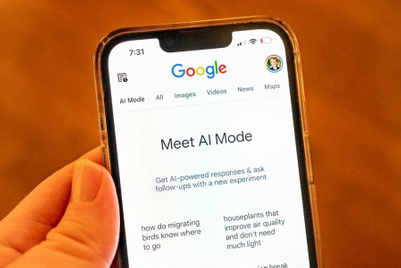
Communications has vaulted to the forefront of Google’s major antitrust trial, with the U.S. Department of Justice (DOJ) taking aim at the tech giant’s internal comms policies, alleging they were used to hide anticompetitive conversations.
In the potentially landmark case, the DOJ and several states primarily allege that Google illegally struck anticompetitive deals with phone makers and internet browser companies to stifle competitors. Those deals included paying Apple and Mozilla to make Google the default engine in Safari and Firefox and ensuring that Android manufacturers prominently display a Google search widget on phones.
Google argues that it’s the dominant search engine because it has the best product, and that anyone can easily switch to a competitor. A company representative could not be immediately reached for comment.
On Friday, the DOJ questioned James Kolotouros, the Google executive responsible for Android partnerships with phone makers, Law360 first reported. The agency pressed Kolotouros on measures he took to protect Google from government antitrust scrutiny.
Much of the DOJ’s focus thus far has been on contending that Google has withheld key evidence, according to Law360. The government has already questioned company witnesses about internal comms policies allegedly discouraging staffers from using certain buzzwords and phrases that may be used against Google, including “dominance” and “market shares.”
The government confronted Kolotouros about a presentation he gave to Google staffers that contained numerous reminders about confidentiality, asserting that “any written communication” discussing revenue sharing and the app distribution deals “should include legal.”
Kolotouros argued that he did not create the presentation, and that he did not think he actively instructed workers to copy attorneys. He mentioned that he copied in-house counsel on all discussions of Google's Android contracts to ensure accuracy.
The Google executive also claimed that he could not recall having or initiating substantial conversations over the Android deals over chat, where any messages would have been deleted after 24 hours. He said he generally would point coworkers to a live conversation or email, where all exchanges would be preserved.
The DOJ then presented Kolotouros with an email in which he wrote that a topic was "best discussed off email,” instructing his coworker to message him on one of Google’s chat platforms instead. Kolotouros claimed he didn’t know whether the goal was to ensure the conversation would not be saved.
On cross-examination by an attorney for Google, Kolotouros said that the complexity of the Android agreements simply made it impractical to discuss them over chat, according to Law360.




.jpg&h=334&w=500&q=100&v=20250320&c=1)
.jpg&h=334&w=500&q=100&v=20250320&c=1)
.jpg&h=334&w=500&q=100&v=20250320&c=1)


.jpg&h=334&w=500&q=100&v=20250320&c=1)


.jpg&h=334&w=500&q=100&v=20250320&c=1)

+(5).jpg&h=268&w=401&q=100&v=20250320&c=1)
.jpg&h=268&w=401&q=100&v=20250320&c=1)

.png&h=268&w=401&q=100&v=20250320&c=1)
.jpg&h=268&w=401&q=100&v=20250320&c=1)
